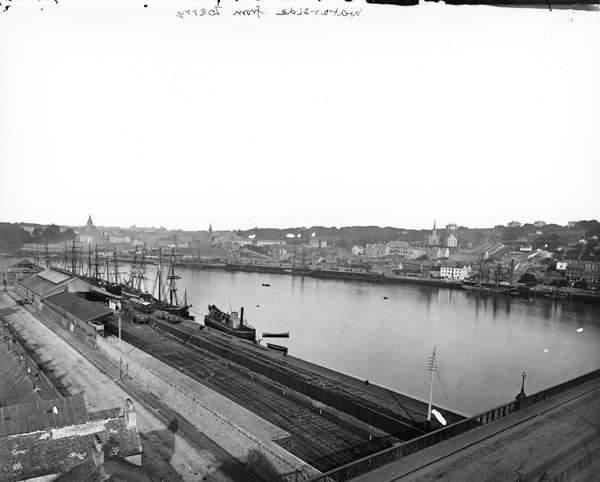Real costs of partition to become clear when customs barriers are erected
Dublin, 26 January 1923 - The North East Boundary Bureau, established last year by the provisional government to collect evidence in support of redrawing the new Irish border, has highlighted the difficulties that would arise from the erection of a fiscal frontier between the north and south of the island.
In its ‘Weekly Bulletin’, the Bureau has pointed out that on the Continent, ‘the hardships, waste, and expense of a land frontier are well understood. It delays and holds up the flow of commerce more effectively than a purely natural barrier. It involves the maintenance of numerous Customs officers supported by mobile armed patrols. Customs blockhouses have to be erected at the specified points where goods are examined.’
Furthermore, all travellers by rail or motor are detained to allow for the scrutiny of their luggage. Such conditions give rise to the dangers of smuggling. According to the Bureau, the ‘incentive to smuggle goods across the border dividing the Free State and British fiscal areas will not be so great as the taxation on either side of the frontier is substantially the same.’ However even with similar scales of taxation Custom frontier must be created.
The Bureau claims that the ‘real difficulties and cost of a land frontier will not be fully disclosed until different scales of taxation are obtained in the two fiscal areas. That contingency cannot be long postponed in view of the contrast between the conditions and needs of Great Britain and ireland.’
Can anything be done to limit the damage? In the event of the Northern government not coming into the all-Ireland parliament, the only alternative, the Boundary Bureau suggests, is a ‘Zollverein agreement’, the essential condition of which is that indirect taxation in the two jurisdictions on the island would be the same. This could only be brought about if, (a) the Free State applies British rates of taxation which also apply to Northern Ireland; or (b) Northern Ireland accepts the fiscal system of the Free State.
The first option is not considered viable as the economic needs of Ireland are very different from those of Britain, but the Bureau believes the second one is not ‘open to the same objection.’
In a related matter, a series of articles for the Freeman’s Journal on the Ulster boundary has argued the case for Derry City’s transfer to the Free State. Not only does the city boast a nationalist majority, but, it is argued, its main economic reliance is not on Derry county but on neighbouring Donegal. Derry county had another centre of business in Coleraine whereas geographically, with the exception of the Waterside, the city is less in Derry than in Donegal.
Derry’s relationship with Donegal and the neighbouring Free State has also been raised by deputy Darrel Figgis in the Dáil who expressed concern about the implication of the closure of the Port of Derry for the shipment of livestock. For large areas of the Free State the Port is the only one available.
[Editor's note: This is an article from Century Ireland, a fortnightly online newspaper, written from the perspective of a journalist 100 years ago, based on news reports of the time.]





















